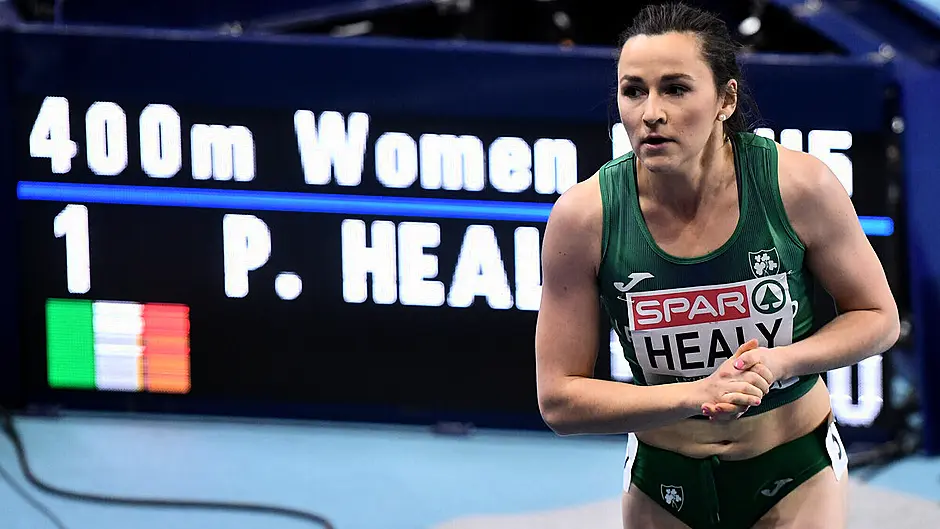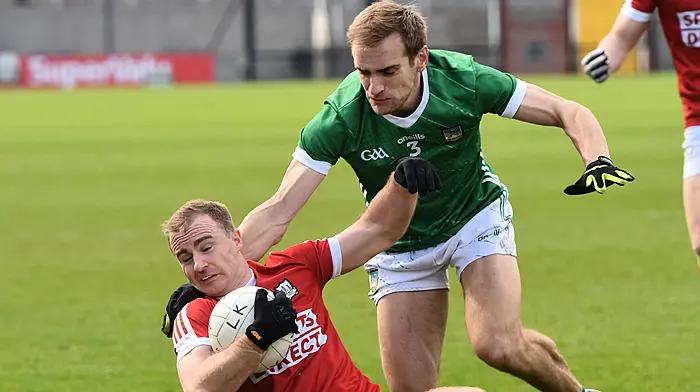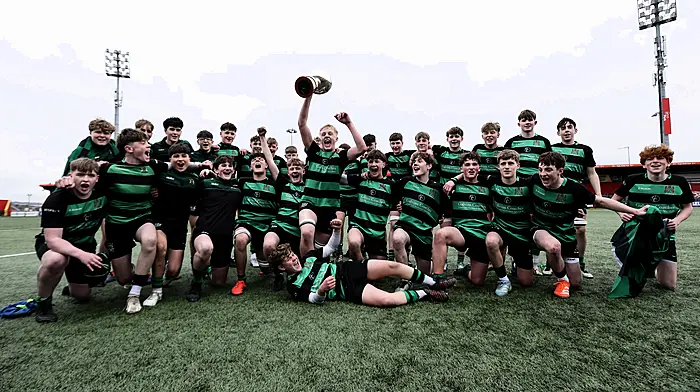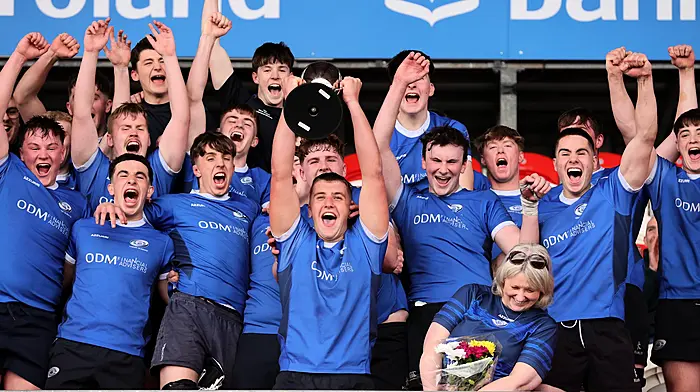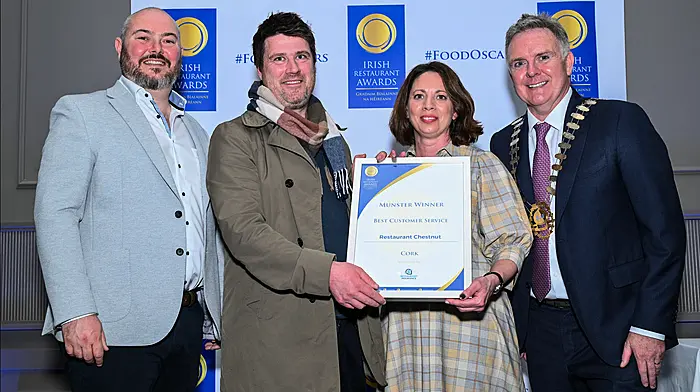BY CATHAL DENNEHY
SHE has come so far, and that first major medal of her career was so tantalisingly, agonisingly near. There are many areas to reflect on after what Phil Healy achieved at last weekend’s European Indoor Championships, but the only possible way to view it through a negative lens is to focus on the cruel fact that her effort wasn’t rewarded with a medal.
One fifth of a second separated her from third place, a bronze within her reach but still just outside her grasp.
In truth, the sport’s obsession with podium positions is at times unhealthy, grossly unfair to those who surpass their previous bests and out-perform all expectations when the pressure is at its peak. Last Saturday Healy did just that, producing the fastest 400m of her career, and it came after two hard races in her legs from the previous day.
And despite the inevitable deflation, the fact that her first major medal had eluded her, the 26-year-old showed wisdom beyond her years to place her weekend in its proper perspective. For athletes, the performance is what matters most, the thing they have control over, but when other athletes find a way to supercede it, all you can do is shake your head and accept you were beaten fair and square.
That’s exactly what Healy did. No excuses, no caveats or shoulda-woulda-couldas. She had given it everything, and yet it wasn’t enough.
But the athletes she was beaten by speaks to the new altitudes that she now inhabits in her sport. Gold medallist Femke Bol is the great white hope of Dutch athletics, a world-class 21-year-old who seems poised for success at the very highest level in the years ahead. Silver medallist Justyna Swiety-Ersetic is the European outdoor 400m champion. Bronze medallist Jodie Williams is one of the biggest talents British athletics has ever produced, a world U20 champion over 100m, a European senior silver medallist over 200m, and an athlete who spent years in the doldrums with injury before roaring back to form with an astonishing run from lane one last weekend.
That Healy was right there with them at the finish, and powered past Dutch star Lieke Klaver to take fourth place up the home straight, speaks to how big of a jump she has taken.
The question is: what’s next?
She and her coach Shane McCormack have long believed her best distance is the 200m, the distance at which she became the first ever Irishwoman to break 23 seconds with her 22.99 in 2018. That was also the summer she smashed the Irish 100m record, clocking 11.28 at a low-key meeting in Dublin.
What event should she target at the Tokyo Olympics? She is currently 26th in the dropdown list on world rankings for the 200m – with 56 places available – so she will be comfortably within the cut-off, but Healy could now also go after the 400m. The issue, however, is that the timetable doesn’t allow athletes to double at this Olympics, so her focus will likely revert to the half-lap distance.
Healy could also go after the 100m, though to do so would require her to rack up a series of strong results early in the outdoor season before the cut-off date at end of June. No matter what she chooses, she will go back into spring training in a position she’s never been in before, with a major championship final under her belt and a sub-52-second clocking for 400m.
That could prove critical to her success outdoors. Amid all the chaos of the past year, she has found a way to get stronger, and while both the 100m and 200m may, on paper, seem a test of pure speed, there is far more to it than that.
Healy’s 100m Irish record of 11.28 suggests she could, with the right strength, clock around 22.6 for 200m, and improved speed endurance – the kind she demonstrated so well last weekend – will go a long way to achieving that.
At the last World Championships, the last athlete to qualify for the 200m final clocked 22.60, while at the last Olympics 22.49 made the final. Healy’s best is still half a second down on that and while it would be ambitious to suggest it will come her way this summer, she seems primed to hack another chunk off her best and get closer to that kind of territory. Do that, and she can undoubtedly make the Olympic semi-final, which would be a monstrous step forward in her career.
Above all, what last weekend will have taught her is that she now belongs at that level, mixing it with the best in Europe in the hunt for medals, and taking her talent to the world stage and feeling at home among the best 15 or 20 sprinters in the world.
As good as she already was, it has given her a licence to dream even bigger.

